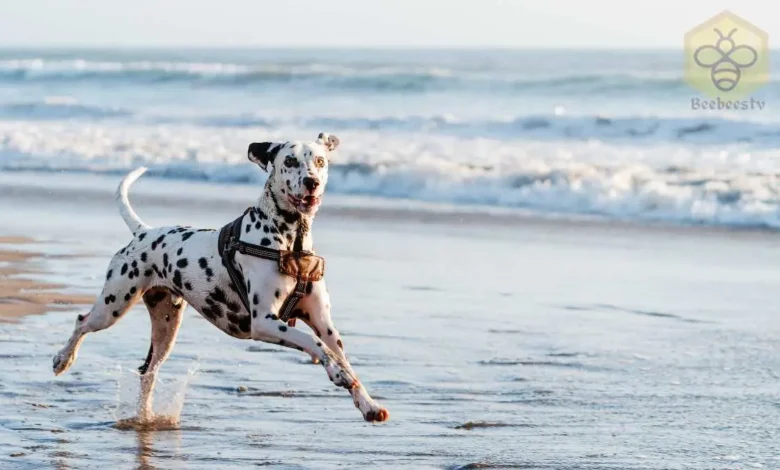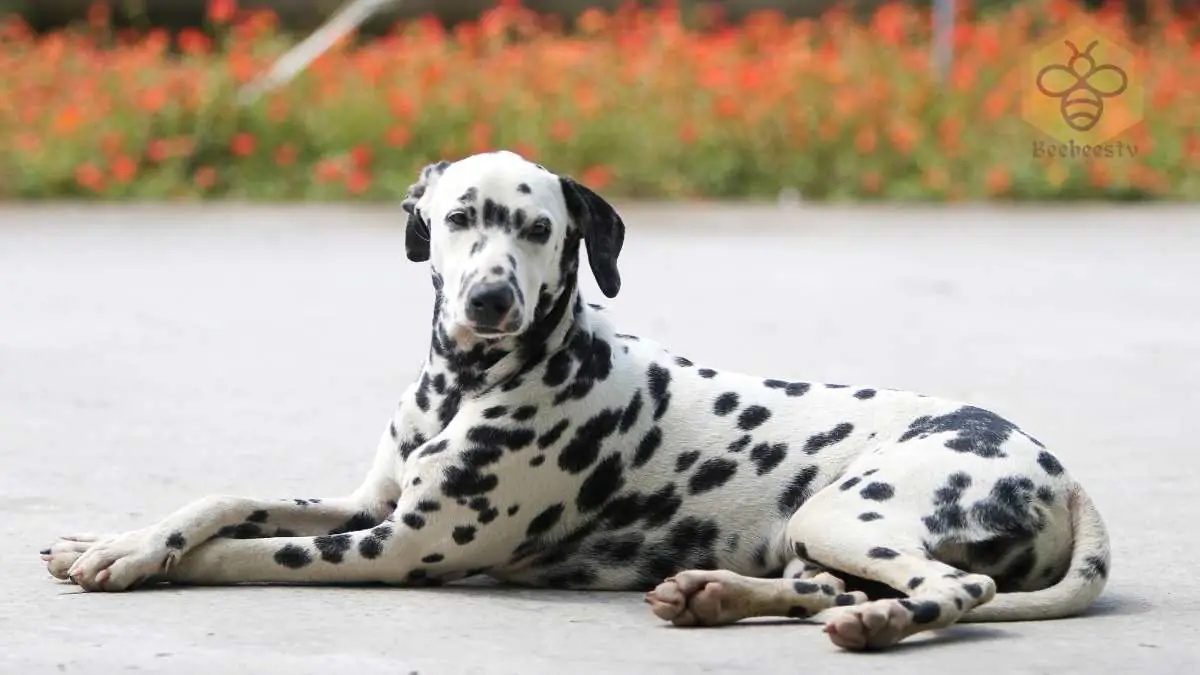Dalmatian: A Spotty Sensation

Dalmatian: The Iconic Spotted Dog Breed
Dalmatian
Introduction
The Dalmatian is one of the most recognizable dog breeds in the world, famous for its distinctive black or liver spots and elegant appearance. Originally bred for guarding, herding, and companionship, this breed has a rich history that includes roles as firehouse mascots, carriage dogs, and even circus performers. Known for their energetic nature, intelligence, and loyalty, Dalmatians make great pets for active families.
Scientific Overview
Scientific Name
Canis lupus familiaris
Common Name
Dalmatian
Scientific Classification
History and Origin
The exact origin of the Dalmatian is uncertain, but historical records suggest that they date back hundreds of years. The breed’s name comes from Dalmatia, a coastal region in modern-day Croatia, where early records of spotted dogs appear. However, similar-looking dogs have been depicted in ancient Egyptian, Greek, and Roman art.
Dalmatians became popular as carriage dogs in 18th-century England, running alongside horse-drawn coaches to protect passengers and cargo. Their strong bond with horses also made them firehouse dogs, where they guided and guarded horse-drawn fire engines.
Physical Characteristics
Size and Weight
- Height: 19–24 inches (48–61 cm)
- Weight: 45–70 pounds (20–32 kg)
- Lifespan: 11–15 years
Appearance
- Coat: Short, dense, and smooth.
- Color: White base coat with black or liver-colored spots.
- Eyes: Brown or blue (sometimes one of each).
- Body: Lean, muscular, and athletic.
- Tail: Long and slightly curved.
Dalmatians are born completely white, and their spots begin to develop within a few weeks.
Temperament and Personality
Dalmatians are known for their high energy levels, intelligence, and playful nature. Their key personality traits include:
- Loyal and affectionate – Strong bond with family members.
- Highly active – Requires plenty of daily exercise.
- Intelligent and trainable – Learns commands quickly but can be stubborn.
- Social and friendly – Gets along well with people and other dogs.
- Protective instincts – Naturally alert and makes a good watchdog.
While friendly, Dalmatians can be aloof with strangers until they warm up to them.
Exercise and Activity Needs
Dalmatians are one of the most energetic dog breeds, requiring at least 1–2 hours of exercise daily. They enjoy:
- Running and jogging – Ideal for active owners.
- Agility training – Helps stimulate their minds and bodies.
- Fetch and interactive play – Keeps them engaged.
- Long walks and hikes – They thrive on outdoor adventures.
Without enough activity, Dalmatians can become bored and destructive, developing behavioral issues.
Training and Socialization
- Early training is essential to prevent stubborn behavior.
- Positive reinforcement methods work best (treats, praise, and play).
- Socialization from a young age helps them get along with other pets and people.
- Crate training is useful for housebreaking.
- Basic obedience commands (sit, stay, come) should be taught early.
Dalmatians excel in dog sports like agility, obedience, and tracking competitions.

Diet and Nutrition
A Dalmatian’s diet should be nutritious and well-balanced, including:
- High-quality protein (chicken, fish, lamb).
- Complex carbohydrates (brown rice, sweet potatoes).
- Essential fats for a healthy coat.
- Fresh vegetables for vitamins and fiber.
Special Note: Dalmatians have unique urinary systems that make them prone to kidney stones. They require a low-purine diet (avoid excessive red meat and organ meats) and plenty of fresh water.
Health and Common Issues
Dalmatians are generally healthy but are prone to certain genetic conditions, including:
1. Deafness
- Up to 30% of Dalmatians are born partially or completely deaf due to a genetic mutation.
- Responsible breeders test puppies for hearing before adoption.
2. Urinary Stones
- Dalmatians are prone to kidney and bladder stones.
- They need proper hydration and a special diet to prevent issues.
3. Hip Dysplasia
- A common joint condition in large and active breeds.
- Regular exercise and a balanced diet help maintain joint health.
4. Skin Allergies
- Some Dalmatians suffer from allergies to food or environmental factors.
- Hypoallergenic diets and medicated shampoos can help.
Grooming and Care
Dalmatians are low-maintenance dogs when it comes to grooming:
- Brushing: 2–3 times a week to reduce shedding.
- Bathing: Every few months or when dirty.
- Ear Cleaning: Weekly, especially for dogs with allergies.
- Nail Trimming: Every 2–3 weeks to prevent overgrowth.
Dalmatians shed year-round, so regular brushing is necessary.
Are Dalmatians Good Pets?
Dalmatians make great pets for active families who can meet their exercise and training needs. They are:
- Loyal and loving – Form strong bonds with their owners.
- Good with children – Playful and energetic.
- Smart and trainable – Can learn commands quickly.
- Not ideal for first-time owners – Require experienced handling.
- Not suited for apartment living – Need space to run.
FAQs About Dalmatians
1. Do Dalmatians bark a lot?
Dalmatians are moderate barkers, but they will alert you if they sense something unusual.
2. Are Dalmatians good with other pets?
Yes, but early socialization is important. They get along well with other dogs but may chase smaller animals.
3. Can Dalmatians live in hot or cold weather?
Dalmatians have short coats, so they tolerate warm climates well but may need a jacket in cold weather.
4. How long do Dalmatians live?
The average lifespan of a Dalmatian is 11–15 years with proper care.
5. Why are Dalmatians associated with firefighters?
Dalmatians were historically used as firehouse dogs to guide and protect horse-drawn fire engines. Today, they remain a symbol of fire departments.
Conclusion
The Dalmatian is a striking, energetic, and intelligent breed that thrives in active households. While they require plenty of exercise, training, and a proper diet, they reward their owners with loyalty, affection, and companionship. If you’re looking for a unique, playful, and hardworking dog, the Dalmatian could be the perfect fit for you!


